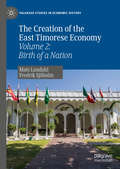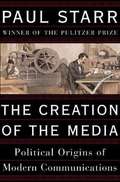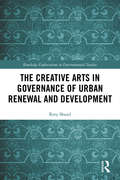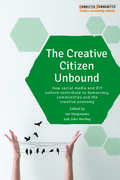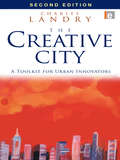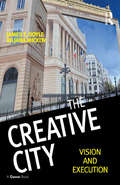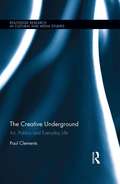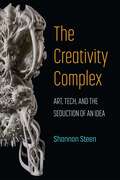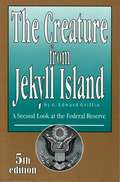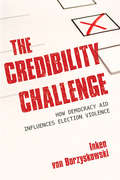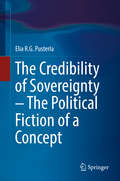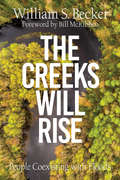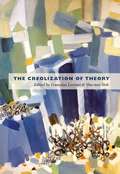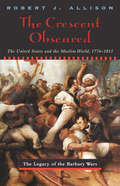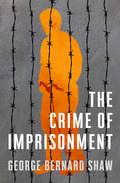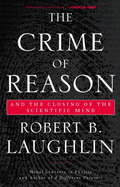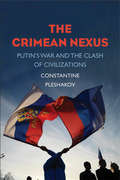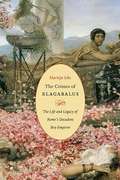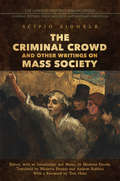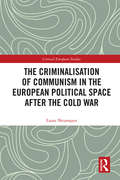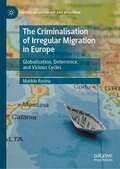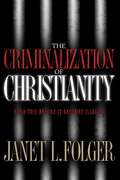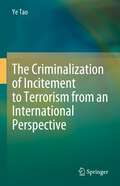- Table View
- List View
The Creation of the East Timorese Economy: Volume 2: Birth of a Nation (Palgrave Studies in Economic History)
by Mats Lundahl Fredrik SjöholmVery little has been written on the economy of East Timor since the country’s independence in 2002, and no comprehensive account exists of the economic history of the country. The former cannot be properly understood without a knowledge of the historical process that created the present-day situation. This research monograph is the first book to combine a historical analysis of the creation and development of the economy of East Timor from the earliest times to the present, and an analysis of the main contemporary problems facing the East Timorese economy. Volume II offers a detailed analysis of the economy of East Timor, of politics, fiscal policy and social progress. It pays particular attention to structural problems: employment generation and the lack of a modern sector, the modernization of agriculture and the management of the oil deposits in the Timor Sea. The first volume, available separately, considers East Timor from a chronological perspective, as a Portuguese colony, and a country occupied by Indonesia up to national independence in 2002. This book will appeal to economists, political scientists and social scientists in general as well as practitioners, since it focuses on down-to-earth problems that need to be solved for the economy to develop. The book can also be read by students both at the undergraduate and graduate levels and could be used for case studies in development.
The Creation of the Media: Political Origins of Modern Communications
by Paul StarrAmerica's leading role in today's information revolution may seem simply to reflect its position as the world's dominant economy and most powerful state. But by the early nineteenth century, when the United States was neither a world power nor a primary center of scientific discovery, it was already a leader in communications-in postal service and newspaper publishing, then in development of the telegraph and telephone networks, later in the whole repertoire of mass communications.<P><P> In this wide-ranging social history of American media, from the first printing press to the early days of radio, Paul Starr shows that the creation of modern communications was as much the result of political choices as of technological invention. His original historical analysis reveals how the decisions that led to a state-run post office and private monopolies on the telegraph and telephone systems affected a developing society. He illuminates contemporary controversies over freedom of information by exploring such crucial formative issues as freedom of the press, intellectual property, privacy, public access to information, and the shaping of specific technologies and institutions. America's critical choices in these areas, Starr argues, affect the long-run path of development in a society and have had wide social, economic, and even military ramifications. The Creation of the Media not only tells the history of the media in a new way; it puts America and its global influence into a new perspective.
The Creative Arts in Governance of Urban Renewal and Development (Routledge Explorations in Environmental Studies)
by Rory ShandThis book focuses on the role of the creative sector in the governance of urban renewal and economic development initiatives. Rory Shand examines the ways in which both the top-down nature of the creative sector, and the bottom-up roles of creative arts organisations, drive development and engage with local communities or areas in regeneration projects that target employment, training and education, as well as social engagement. Underpinning these projects are governance mechanisms, through delivery, funding and participation. Drawing on case studies from the UK, Germany and Canada, Shand compares national creative sector policies and creative arts bodies engaged in the governance of urban renewal and development programmes, as well as including a comparative chapter offering an overview of best and worst practice, which also examines and summarises the key themes across both theory and practice. In his concluding remarks, he highlights and discusses the key challenges posed by governance mechanisms to urban renewal and economic development programmes and identifies future comparative case studies in the field. This book will be of great interest to students of environmental studies, public policy and politics and geography, as well as being a relevant resource for practitioners from NGOs, local and national levels of governments and community projects.
The Creative Citizen Unbound: How Social Media and DIY Culture Contribute to Democracy, Communities and the Creative Economy (Connected Communities)
by Ian Hargreaves and John HartleyThe creative citizen unbound introduces the concept of ‘creative citizenship’ to explore the potential of civic-minded creative individuals in the era of social media and in the context of an expanding creative economy. Drawing on the findings of a 30-month study of communities supported by the UK research funding councils, multidisciplinary contributors examine the value and nature of creative citizenship, not only in terms of its contribution to civic life and social capital but also to more contested notions of value, both economic and cultural. This original book will be beneficial to researchers and students across a range of disciplines including media and communication, political science, economics, planning and economic geography, and the creative and performing arts.
The Creative City: A Toolkit for Urban Innovators
by Charles LandryThe Creative City is a clarion call for imaginative action in developing and running urban life. It shows how to think, plan and act creatively in addressing urban issues, with remarkable examples of innovation and regeneration from around the world. This revised edition of Charles Landry's highly influential text has been updated with a new, extensive overview.
The Creative City: Vision and Execution
by James E. Doyle Biljana MickovThe Creative City: Vision and Execution, edited by James E. Doyle and Biljana Mickov, challenges the popular understanding of the Creative City, by bridging the gap between the Creative City as concept and the Creative City as practice and, in so doing, provides a contemporary template for policy makers, city planners, and citizens alike. The book will offer researchers and pragmatists a series of real-life examples of successful cultural and creative practice throughout Europe, reflecting on the analysis and thinking that forms our contemporary understanding of the creative city. It will examine and explain the changes to the concept of the ’creative city’, explore its connectivity to the cultural sector as well as other sectors and practices across Europe and will serve to illustrate the perspectives of Cultural Managers, Educators, Professionals and Researchers from the creative sector in Dublin and Europe. This book will present the reader, and the cultural sector at large, with a new reality based on the quality of contemporary creative practice. Doyle and Mickov address cultural trends such as sustainability and social networking and how they value-impact our attitudes towards culture and the creative city By recognizing that we live in a time of rapid change, which affects all systems, financial models, resources, the economy and technology, we also recognize that the creative process is at the heart of our responses to these changes.
The Creative Underground: Art, Politics and Everyday Life (Routledge Research in Cultural and Media Studies)
by Paul ClementsPaul Clements champions the creative underground and expressions of difference through visionary avant-garde and resistant ideas. This is represented by an admixture of utopian literature, manifestos and lifestyles which challenge normality and attempt to reinvent society, as practiced for example, by radicals in bohemian enclaves or youth subcultures. He showcases a range of 'art' and participatory cultural practices that are examined sociopolitically and historically, employing key theoretical ideas which highlight their contribution to aesthetic thinking, political ideology, and public discourse. A reevaluation of the arts and progressive modernism can reinvigorate culture through active leisure and post-work possibilities beyond materialism and its constraints, thereby presenting alternatives to established understandings and everyday cultural processes. The book teases out the difficult relationship between the individual, culture and society especially in relation to autonomy and marginality, while arguing that the creative underground is crucial for a better world, as it offers enchantment, vitality and hope.
The Creativity Complex: Art, Tech, and the Seduction of an Idea
by Shannon Steen“Creativity” is a word that excites and dazzles us. It promises brilliance and achievement, a shield against conformity, a channel for innovation across the arts, sciences, technology, and education, and a mechanism for economic revival and personal success. But it has not always evoked these ideas. The Creativity Complex traces the history of how creativity has come to mean the things it now does, and explores the ethical implications of how we use this term today for both the arts and for the social world more broadly. Richly researched, the book explores how creativity has been invoked in arenas as varied as Enlightenment debates over the nature of cognition, Victorian-era intelligence research, the Cold War technology race, contemporary K-12 education, and even modern electoral politics. Ultimately, The Creativity Complex asks how our ideas about creativity are bound up with those of self-fulfillment, responsibility, and the individual, and how these might seduce us into joining a worldview and even a set of social imperatives that we might otherwise find troubling.
The Creature from Jekyll Island: A Second Look at the Federal Reserve
by G. Edward Griffin<p>This is the classic exposé of the Fed that has become one of the best-selling books in its category of all time. Where does money come from? Where does it go? Who makes it? The money magician's secrets are unveiled. Here is a close look at their mirrors and smoke machines, the pulleys, cogs, and wheels that create the grand illusion called money. A boring subject? Just wait. You'll be hooked in five minutes. It reads like a detective story - which it really is, but it's all true. <p>This book is about the most blatant scam of history. It's all here: the cause of wars, boom-bust cycles, inflation, depression, prosperity. Your world view will definitely change. Putting it quite simply, this may be the most important book on world affairs you will ever read. The 5th Edition includes a no-holds barred analysis of bank bailouts that are shown to be nothing less than legalized plunder of the people. Many other updates have been added, including a revision to the list of those who attended the historic meeting at Jekyll Island where the Federal Reserve was created.</p>
The Credibility Challenge: How Democracy Aid Influences Election Violence
by Inken von BorzyskowskiThe key to the impact of international election support is credibility; credible elections are less likely to turn violent. So argues Inken von Borzyskowski in The Credibility Challenge, in which she provides an explanation of why and when election support can increase or reduce violence. Von Borzyskowski answers four major questions: Under what circumstances can election support influence election violence? How can election support shape the incentives of domestic actors to engage in or abstain from violence? Does support help reduce violence or increase it? And, which type of support—observation or technical assistance—is better in each instance? The Credibility Challenge pulls broad quantitative evidence and qualitative observations from Guyana, Liberia, Kenya, Sierra Leone, and Bangladesh to respond to these questions. Von Borzyskowski finds that international democracy aid matters for election credibility and violence; outside observers can exacerbate postelection violence if they cast doubt on election credibility; and technical assistance helps build electoral institutions, improves election credibility, and reduces violence. Her results advance research and policy on peacebuilding and democracy promotion in new and surprising ways.
The Credibility of Sovereignty - The Political Fiction of a Concept
by Elia R.G. PusterlaThe book deeply analyses the bilateral relations between Switzerland and the European Union and their effect on the former's sovereignty in the context of Europeanisation. This touches on philosophical debates on the complexity of sovereignty. What sovereignty is at stake when talking about Swiss-EU relations? This issue not only faces the elusiveness of sovereignty as a concept, but also the proliferation of hypocrisy on its presence within states. The book encounters the deconstructionist hypothesis stating that there is nothing to worry about but the belief there is something to worry about. Derrida's deconstruction of sovereignty allows indeed one to grasp the fictional essence of sovereignty based on the metaphysics of presence. The presence of self-positing sovereign ipseity is fictional since absent in the present, but spectrally present in the belief of its presence to come. Sovereignty is a matter of credibility, or the credible promise of a normative statement to come. Hence, the book challenges the realist/neorealist argument stating that states are credibly sovereign until proven otherwise and explains that the debate on state sovereignty calls for the unveiling of this hypocritical epistemology cunningly disguised as an objective presence. Swiss-EU relations thus become the cornerstone to not only theorise but also test sovereignty and deconstruct the two ontological and epistemological sides of the same coin, or the modern hypocrisy of sovereignty. This deconstruction constitutes the very problématique of any attempt to understand whether and how a state can be sovereign and solve the problem as to how to neutralise the différance and identify the difference between credible and incredible claims of sovereignty. This problématique connects the theory and practice of sovereignty innovatively, providing positivist evidence on the arguable credibility of the Swiss claim of sovereignty and confirming the presence of a theological dimension within politics.
The Credibility of Transnational NGOs
by David A. Lake Janice Gross Stein Peter A. GourevitchWe rely on NGOs to monitor the ethical practices of governments and for-profit firms and to undertake many humanitarian tasks that public and private actors will not do. While we are critical of public and private sector failures, we do not reflect enough on the credibility of the NGOs which take their place. Can we be sure that products NGOs label as child-labor free are in fact so, that the coffee labeled as 'fair trade' is farmed in sustainable ways, or that the working conditions monitored by NGOs are safe and that the wages are reasonable? Can we know that humanitarian organizations are, in fact, using our donations to alleviate human suffering rather than pursuing other goals? This book explores the problems of establishing the credibility of NGO activities as they monitor working conditions, human rights and elections and provide finance through microcredit institutions, development aid and emergency assistance.
The Creeks Will Rise: People Coexisting with Floods
by William S. BeckerIn pursuit of economic growth, the United States and other developed countries are testing the tolerance of the natural world. The results include the loss of valuable ecosystems, global climate change, and the degradation of the planet's ability to support life. Journalist William Becker argues that our mission in the 21st century should be to fix what we have broken in the natural world and to enlist healthy ecosystems in our pursuit of economic and physical security. Becker begins by sounding an alarm about the inability of the dams and levees we built over the last century to handle the severity of sea-level rise and record floods we see today. The Creeks Will Rise delves into some of the historical and philosophical underpinnings that have led to the climate change situation we now find ourselves in. Becker fearlessly takes on the fossil fuel industry, holding it accountable for the enormous contribution it has made to climate change. He also includes recommendations for solutions as well as specific advice and resources for anyone working toward resolving the climate crisis.
The Creolization of Theory
by Shu-Mei Shih Françoise LionnetIntroducing this collection of essays, Franoise Lionnet and Shu-mei Shih argue that looking back--investigating the historical, intellectual, and political entanglements of contemporary academic disciplines--offers a way for scholars in the humanities to move critical debates forward. They describe how disciplines or methodologies that seem distinct today emerged from overlapping intellectual and political currents in the 1960s and early 1970s, in the era of decolonization, the U. S. civil rights movement, and antiwar activism. While both American ethnic studies programs and "French theory" originated in decolonial impulses, over time, French theory became depoliticized in the American academy. Meanwhile, ethnic studies, and later also postcolonial studies, developed politically and historically grounded critiques of inequality. Suggesting that the abstract universalisms of Euro-American theory may ultimately be the source of its demise, Lionnet and Shih advocate the creolization of theory: the development of a reciprocal, relational, and intersectional critical approach attentive to the legacies of colonialism. This use of creolization as a theoretical and analytical rubric is placed in critical context by Dominique Chanc, who provides a genealogy of the concept of creolization. In their essays, leading figures in their fields explore the intellectual, disciplinary, and ethical implications of the creolized theory elaborated by Lionnet and Shih. douard Glisssant links the extremes of globalization to those of colonialism and imperialism in an interview appearing for the first time in English in this volume. The Creolization of Theory is a bold intervention in debates about the role of theory in the humanities. Contributors. tienne Balibar, Dominique Chanc, Pheng Cheah, Leo Ching, Liz Constable, Anne Donadey, Fatima El-Tayeb, Julin Everett, douard Glissant, Barnor Hesse, Ping-hui Liao, Franoise Lionnet, Walter Mignolo, Andrea Schwieger Hiepko, Shu-mei Shih
The Crescent Obscured: The United States and the Muslim World 1776-1815
by Robert J. AllisonFrom the beginning of the colonial period to the recent conflicts in the Middle East, encounters with the Muslim world have helped Americans define national identity and purpose. Focusing on America's encounter with the Barbary states of North Africa from 1776 to 1815, Robert Allison traces the perceptions and mis-perceptions of Islam in the American mind as the new nation constructed its ideology and system of government. "A powerful ending that explains how the experience with the Barbary states compelled many Americans to look inward . . . with increasing doubts about the institution of slavery. " —David W. Lesch, Middle East Journal "Allison's incisive and informative account of the fledgling republic's encounter with the Muslim world is a revelation with a special pertinence to today's international scene. " —Richard W. Bulliet, Journal of Interdisciplinary History "This book should be widely read. . . . Allison's study provides a context for understanding more recent developments, such as America's tendency to demonize figures like Iran's Khumaini, Libya's Qaddafi, and Iraq's Saddam. " —Richard M. Eaton, Eighteenth Century Studies
The Crime of Aggression: The Quest for Justice in an Age of Drones, Cyberattacks, Insurgents, and Autocrats (Human Rights and Crimes against Humanity #36)
by Noah WeisbordA gripping behind-the-scenes account of the dramatic legal fight to hold leaders personally responsible for aggressive warOn July 17, 2018, starting an unjust war became a prosecutable international crime alongside genocide, crimes against humanity, and war crimes. Instead of collective state responsibility, our leaders are now personally subject to indictment for crimes of aggression, from invasions and preemptions to drone strikes and cyberattacks. The Crime of Aggression is Noah Weisbord’s riveting insider’s account of the high-stakes legal fight to enact this historic legislation and hold politicians accountable for the wars they start.Weisbord, a key drafter of the law for the International Criminal Court, takes readers behind the scenes of one of the most consequential legal dramas in modern international diplomacy. Drawing on in-depth interviews and his own invaluable insights, he sheds critical light on the motivations of the prosecutors, diplomats, and military strategists who championed the fledgling prohibition on unjust war—and those who tried to sink it. He untangles the complex history behind the measure, tracing how the crime of aggression was born at the Nuremberg trials only to fall dormant during the Cold War, and he draws lessons from such pivotal events as the collapse of the League of Nations, the rise of the United Nations, September 11, and the war on terror.The power to try leaders for unjust war holds untold promise for the international order, but also great risk. In this incisive and vitally important book, Weisbord explains how judges in such cases can balance the imperatives of justice and peace, and how the fair prosecution of aggression can humanize modern statecraft.
The Crime of Imprisonment
by George Bernard ShawThe Nobel Prize–winning social critic examines the absurdities and moral indignities of modern incarceration in this classic work. Best known for his theatrical works of biting social satire, George Bernard Shaw was also a committed political activist who, at various times, found himself in conflict with the law. Though he was never arrested, Shaw was deeply concerned with the experience of imprisonment and its debilitating effects on inmates. In this polemical study of the contemporary prison system, Shaw dismantles many of the standard arguments for harsh prison sentences. He argues that the impulse for retribution is at odds with the goal of reform, and that prison often fosters greater criminality rather than acting as a deterrent.
The Crime of Reason: And the Closing of the Scientific Mind
by Laughlin Robert B.We all agree that the free flow of ideas is essential to creativity. And we like to believe that in our modern, technological world, information is more freely available and flows faster than ever before. But according to Nobel Laureate Robert Laughlin, acquiring information is becoming a danger or even a crime. Increasingly, the really valuable information is private property or a state secret, with the result that it is now easy for a flash of insight, entirely innocently, to infringe a patent or threaten national security. The public pays little attention because this vital information is "technical”--but, Laughlin argues, information is often labeled technical so it can be sequestered, not sequestered because it’s technical. The increasing restrictions on information in such fields as cryptography, biotechnology, and computer software design are creating a new Dark Age: a time characterized not by light and truth but by disinformation and ignorance. Thus we find ourselves dealing more and more with the Crime of Reason, the antisocial and sometimes outright illegal nature of certain intellectual activities. The Crime of Reason is a reader-friendly jeremiad, On Bullshit for the Slashdot and Creative Commons crowd: a short, fiercely argued essay on a problem of increasing concern to people at the frontiers of new ideas.
The Crimean Nexus: Putin's War and the Clash of Civilizations
by Constantine PleshakovHow the West sleepwalked into another Cold War A native of Yalta, Constantine Pleshakov is intimately familiar with Crimea's ethnic tensions and complex political history. Now, he offers a much-needed look at one of the most urgent flash points in current international relations: the first occupation and annexation of one European nation's territory by another since World War II. Pleshakov illustrates how the proxy war unfolding in Ukraine is a clash of incompatible world views. To the U. S. and Europe, Ukraine is a country struggling for self-determination in the face of Russia's imperial nostalgia. To Russia, Ukraine is a "sister nation," where NATO expansionism threatens its own borders. In Crimea itself, the native Tatars are Muslims who are vehemently opposed to Russian rule. Engagingly written and bracingly nonpartisan, Pleshakov's book explains the missteps made on all sides to provide a clear, even-handed account of a major international crisis.
The Crimes of Elagabalus: The Life and Legacy of Rome's Decadent Boy Emperor
by Martijn IcksThe four short years of Elagabalusâs rule have generated nearly two millennia of sustained attention, from salacious rumor to scholarly analysis to novels that cast him as a gay hero avant la lettre. Here, Martijn Icks succeeds in distinguishing the reality of the emperorâs brief life from the myth that clouds itâand in tracing the meaning of the myth itself to the present day. In 219 ce, when the fourteen-year-old Syrian arrived in Rome to assume the throne, he brought with him a conical black stone, which he declared was the earthly form of the sun god El-Gabal, who gave Elagabalus his name and lifelong office as high priest. Shoving Jupiter aside, the new emperor did the unthinkable, installing El-Gabal at the head of the Roman pantheon and marrying a vestal virgin. Whether for these offenses, his neglect of the empire, or weariness from watching the emperor dance at the elaborate daily sacrifices, the imperial guards murdered Elagabalus and put El-Gabal in a packing crate. Sifting through later accounts of the emperorâs outrageous behavior, Icks finds the invented Elagabalus as compelling as the historical figure. In literature, art, and music from the fifteenth century on, Elagabalus appears in many guises, from evil tyrant to anarchist rebel, from mystical androgyne to modern gay teenager, from decadent sensualist to pop star. These many reincarnations reveal as much about the ages that produced them, Icks shows, as they do about the bad-boy emperor himself.
The Criminal Crowd and Other Writings on Mass Society (Lorenzo Da Ponte Italian Library)
by Tom Huhn Nicoletta Pireddu Scipio SigheleThe Criminal Crowd and Other Writings on Mass Society is the first English collection of writings by Italian jurist, sociologist, cultural and literary critic Scipio Sighele. Sighele is largely responsible for providing post-unification Italy with a new outlook on issues ranging from the blurring line between individual and collective accountability, the role of urbanization in the development of criminality, and the emancipation of women. This work draws a multifaceted portrait of a provocative thinker and public intellectual caught between tradition and modernity during the European fin de siècle. Containing a comprehensive introduction by the editor, The Criminal Crowd and Other Writings on Mass Society includes Sighele’s seminal work, The Criminal Crowd, as well as his formative studies on group behaviour. Nicoletta Pireddu contextualizes Sighele’s contribution to the so-called ‘age-of crowds,’ from the fierce polemic with his French rivals Gustave LeBon and Gabriel Tarde to the scientific, literary, and cultural developments of his conceptualization of mass behaviours as a legitimate object of psychological investigation into a new century.
The Criminalisation of Communism in the European Political Space after the Cold War (Critical European Studies)
by Laure NeumayerMemory has taken centre stage in European-level policies after the Cold War, as the Western historical narrative based on the uniqueness of the Holocaust was being challenged by calls for an equal condemnation of Communism and Nazism. This book retraces the anti-communist mobilisations carried out by Central European representatives in the Parliamentary Assembly of the Council of Europe and in the European Parliament since the early 1990s. Based on archive consultation, interviews and ethnographic observation, it analyses the memory entrepreneurs’ requests for collective remembrance and legal accountability of Communist crimes in European institutions, Pan-European political parties and transnational advocacy networks. The book argues that these newcomers managed to strengthen their positions and impose a totalitarian interpretation of Communism in the European assemblies, which directly shaped the EU’s remembrance policy. However, the rules of the European political game and recurring ideological conflicts with left-wing opponents reduced the legal and judicial implications of this anti-communist grammar at the European level. This text will be of key interest to scholars and graduate students in memory studies, post-Communist politics and European studies, and more broadly in history, political science and sociology.
The Criminalisation of Irregular Migration in Europe: Globalisation, Deterrence, and Vicious Cycles (Politics of Citizenship and Migration)
by Matilde RosinaThis book explores the criminalisation of irregular migration in Europe. In particular, it investigates the meaning, purpose, and consequences of criminalising unauthorised entry and stay. From a theoretical perspective, the book adds to the debate on the persistence of irregular migration, despite governments’ attempts at deterring it, by taking an interdisciplinary approach that draws from international political economy and criminology. Using Italy and France as case studies, and relying on previously unreleased data and interviews, it argues that criminalisation has no effect on migratory flows, and that this is due to factors including the latter’s structural determinants and the likely creation of substitution effects. Furthermore, criminalisation is found to lead to adverse consequences, including by contributing to vicious cycles of irregularity and insecurity.
The Criminalization of Christianity: Read This Book Before It Becomes Illegal!
by Janet L. FolgerThere is a war going on for the future of our country. Most people know that. What they may not know is that if Christians lose, the result won’t merely be enduring public policy we disagree with-it will be a prison sentence for those who oppose it. We’ve all seen the attack coming. First the Supreme Court said kids can’t pray in school. Then the Ten Commandments were ripped from the classrooms. Now pastors are being removed from their pulpits and put in jail for speaking out against homosexuality (Sweden). And things are only getting worse. How in the world did we get to this place? And why is it that Christians are singled out in this assault on morality? Serving as a wake-up call for America, this book will expose the truth that Christianity is being criminalized-and that we must stand up against it now . BACK COVER [Head] “You Have the Right to Remain Silent…” Which of the following actually happened in America ?A man is fired for displaying Bible verses in his work space. A judge orders a mother not to teach her daughter anything that could be considered “homophobic. ” High school students are trained to roam the halls in search of verbal “offenses” to report to law enforcement officers. A pastor faces a prison sentence for reading from the Bible. All of the above. [In smaller point size]: ANSWER: [PRINTED UPSIDE DOWN]: E) All of the above. Here’s where: A) Idaho , B) Colorado, C) West Virginia, and D) Pennsylvania . [back to normal body copy sized font]: As a Christian in this country, you may be understandably reluctant to speak out on moral issues like abortion, homosexuality, or pornography. But while we have therightto remain silent, that’s not what God calls us to do. Because if the world can silence the truth, itwillsilence the gospel. Don’t believe it? Read this book. INSIDE LEFT FLAP: (to wrap to back flap if more space is needed): The Agenda to Silence the Church InThe Criminalization of Christianity, Janet Folgerpresents a well documented and frightening road map of how Christianity is slowly becoming against the law in America. The movement to ban public prayer and to ban public displays of the Ten Commandments or of any other Christian symbols was only the beginning. She shows convincingly how the ultimate aim is to make Christianity against the law. The Criminalization of Christianityexplains where the threat is coming from and suggests what we as Christians can do to preserve our rights. -William J. Murray,Chairman Religious Freedom Coalition Son of Madalyn Murray O’Hair, plaintiff in a case to remove school prayer [Start of body copy]: People in New York are fired from their jobs. Kids in California are suspended from school. Pastors in Sweden are sentenced to prison. Their crime involves nothing more than exercising their religious freedoms. At first the attacks against Christianity were subtle. The Supreme Court ruled that children can’t pray in school. The Ten Commandments were removed from our classrooms and, later, our courtrooms. Now pastors are being imprisoned for speaking out against homosexuality from their own pulpits. How in the world did we get to this place in a “free” and civilized society? And how far will it go? While headlines reveal a gradual undermining of moral values in our society, the truth between those lines silently screams that our very freedom is at stake. Now this provocative book exposes the attack on values for what it is: a pointed war being waged against Christians and the faith they profess. A frequent guest on such programs as20/20, Hannity and Colmes, Hardball,and
The Criminalization of Incitement to Terrorism from an International Perspective
by Ye TaoThis book critically analyzes the criminalization of incitement to terrorism under the fundamental principles of legality, necessity, and proportionality with the aim of striking a fair balance between security and liberty on this complicated issue. The criminalization of incitement to terrorism has gained momentum, but no exact or generally accepted definition of this offense exists at the international level. What’s more, given that the criminalization of incitement to terrorism results in restrictions on the exercise of citizens’ freedom of expression, there should be certain limitations on those criminal measures to avoid unnecessary or disproportionate infringement of this fundamental human right. Nevertheless, there has not been a precise standard by which to determine how to draw the line between anti-terrorism and the protection of freedom of expression. Hence, it could be concluded that the criminalization of incitement to terrorism concerns how to balance security and liberty, and the safeguarding principles of legality, necessity, and proportionality should be fully observed in considering this issue.This book studies definitions of “incitement”, “terrorism”, and “incitement to terrorism” under the relevant international and national legislation, and points out the existing absence, ambiguousness, or substantive divergence in defining actus reus and mens rea regarding incitement to terrorism. It carefully considers the current need for and essential limitations on criminal measures against incitement to terrorism in accordance with the principles of necessity and proportionality, and particularly focuses on how to balance the protection of freedom of expression with the criminalization of incitement to terrorism. In considering how to draw a line between the two, the book formulates precise requirements for objective and subjective elements of this offense in accordance with the principle of legality.Given its scope, it will be of interest not only to academics, human rights lawyers and practitioners, but also to policymakers, as it offers an extensive evaluation of the effects and counter-effects of existing criminal measures.
